If you're like most individuals who desire nothing but perfect skin, you probably have a long list of beauty products that keep your body looking fresh all day. Amongst your skincare products includes an exfoliator, which helps to eliminate dull, dry skin from the surface, leaving you a baby-like smoothness.
While the exfoliation process is necessary, very few emphasize what to do after exfoliation; this phase is important because the wrong move, or no action at all, will produce adverse effects for your skin like irritation, redness, itching, and many other unwanted problems.
This article will help you avoid such an unnecessary fate by presenting what you need to do immediately after exfoliating your skin. Read on.
What Happens to the Skin During Exfoliation
Before proceeding with this article, it's crucial to understand what happens to the skin while you exfoliate. By definition, exfoliation removes dead cells from the surface to reveal the fresh layer underneath.
This action can be done using either physical or chemical exfoliants. The former is made of chemical compounds that disconnect the dead cells from the fresh skin, and the latter consists of granular substances that peel off the waste tissue.
Upon removing this surface, the skin looks visually appealing, soft, and perfect; however, exfoliation also removes the body's natural oil. This fact means that your skin will slowly begin feeling dry after you step sour in the bathroom, and within a short time, will become itchy and uncomfortable.
Without the correct skincare products, your skin will receive minor inflammations due to the poor elasticity of the tissue. Additionally, this low elasticity will cause relatively mild stings that feel like mosquito bites, meaning it would be best if you moisturized as soon as possible.
What to do After Exfoliation
Now that you understand the process behind exfoliation and what happens after you've rid your body of the dead tissue, it's important to learn what to do after executing the skincare technique.
Apply Moisturizers
if you just finished exfoliating your face, or any other body part, the most important thing to remember is to stay moisturized. While one exfoliation won't completely strip your skin of all of its oil, it will remove most of it, leaving the surface dry.
Therefore, exfoliating without applying a good moisturizer is guaranteed to leave the face drier than it was before exfoliation.
As previously mentioned, exfoliation - especially physical exfoliation - is relatively harsh on the skin as peeling away the dead cells results in moisture removal. It would be best if you rehydrated this area for it to function properly.
Note that Hydration is also essential for the skin to repair and protect itself from external forces; moisturize with products containing Glycerin as they are perfect for the task and recommended by dermatologists.
Protect With Sunscreen
Every skincare expert emphasizes wearing sunscreen at all times, whether it's raining or the sun is at maximum output; as long as you're going outside, your skin needs contact with as little UV rays as possible.
However, this beauty tip is more crucial than ever after you exfoliate as your skin is in a very sensitive state at the moment. Even if you're African and your skin can take the heat, you still need sunscreen protection.
The raw, exposed flesh after exfoliation is susceptible to damage from UV rays, which can cause premature aging, irritations, and even skin cancer. Therefore, while you get your moisturizer to hydrate your skin, include the sunscreen and protect the surface.
Let the Skin Relax
Lastly, after applying your moisturizer and protective sunscreen, you need to let the skin relax, calm down, recover, and repair itself. This requirement is essential for physical and chemical exfoliation as physical exfoliants are sharp and rough, peeling off the skin with slight discomfort.
On the other hand, chemical exfoliants contain AHAs and BHAs, which work to loosen the bond between dead and fresh skin and affect the fresh layer slightly. Therefore, you need to let the area rest before subjecting it to potentially harsh products.
You can speed up the recovery phase with soothing ingredients like Centella, Asiatica, and guaiazulene, popularly found in ointments for medically treating burns.
Conclusion
In the end, exfoliation is essential for achieving visually appealing skin, but failing to hydrate the surface can cause painful irritations and dryness that leave your skin feeling worse than before you exfoliated. Also, don't forget to apply sunscreen and let it rest to ensure that it is protected and ready to proceed with a day filled with numerous activities.
Cleanlogic Bath & Body Sensitive Skin Dual-Texture Facial Mitt – Cleanlogic Body Care



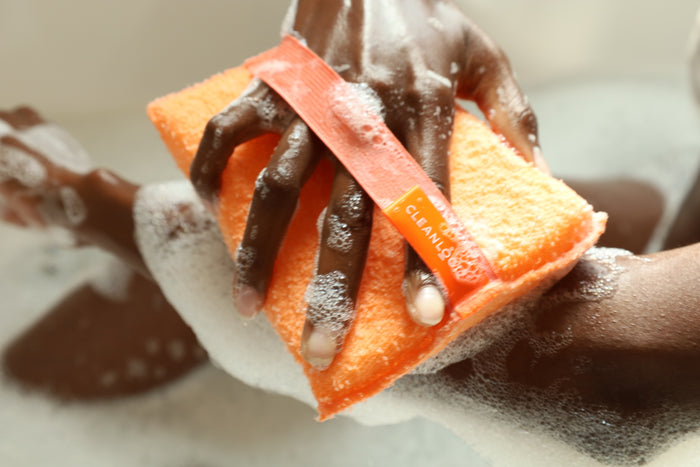

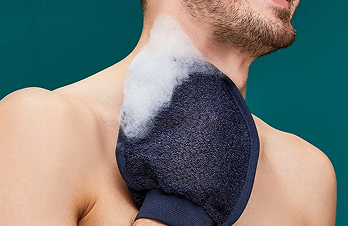


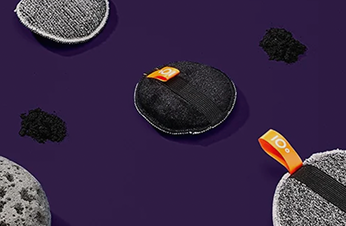
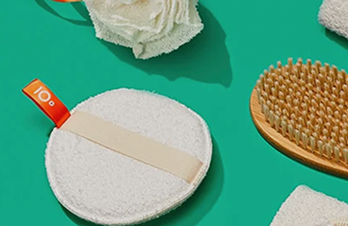
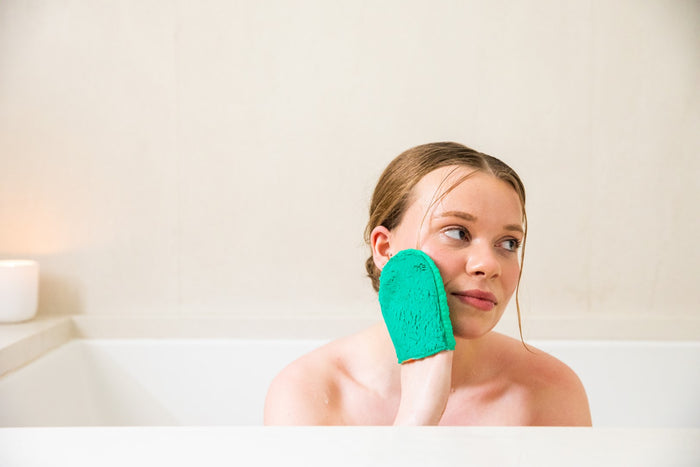
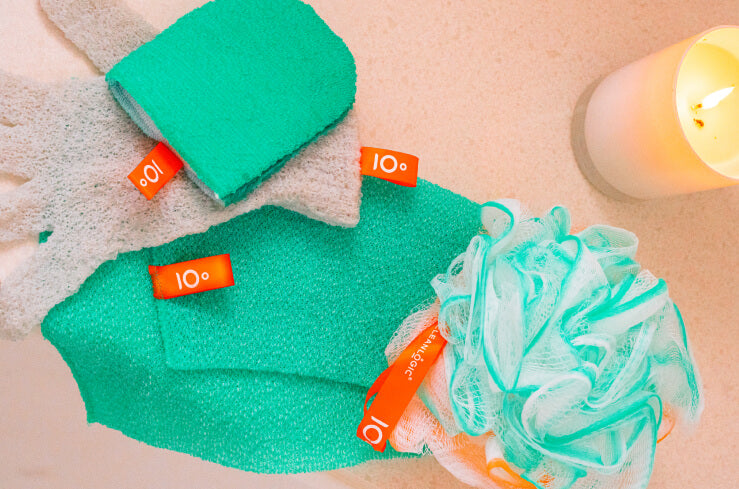
0 comments